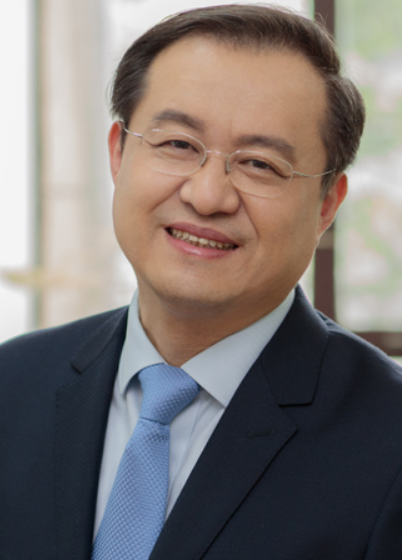26 October 2020
Prof. Dr. Xue Wang Appointed Section Associate Editor of Physical Sensors Section in Sensors
You are accessing a machine-readable page. In order to be human-readable, please install an RSS reader.
All articles published by MDPI are made immediately available worldwide under an open access license. No special permission is required to reuse all or part of the article published by MDPI, including figures and tables. For articles published under an open access Creative Common CC BY license, any part of the article may be reused without permission provided that the original article is clearly cited. For more information, please refer to https://www.mdpi.com/openaccess.
Feature papers represent the most advanced research with significant potential for high impact in the field. A Feature Paper should be a substantial original Article that involves several techniques or approaches, provides an outlook for future research directions and describes possible research applications.
Feature papers are submitted upon individual invitation or recommendation by the scientific editors and must receive positive feedback from the reviewers.
Editor’s Choice articles are based on recommendations by the scientific editors of MDPI journals from around the world. Editors select a small number of articles recently published in the journal that they believe will be particularly interesting to readers, or important in the respective research area. The aim is to provide a snapshot of some of the most exciting work published in the various research areas of the journal.
Original Submission Date Received: .
We are pleased to announce that Prof. Dr. Xue Wang has been appointed as Section Associate Editor of the Physical Sensors Section in Sensors (ISSN 1424-8220). He joined Sensors in 2008 and has made great contributions to our growth and development.
Xue Wang is a professor of the Department of Precision Instruments at Tsinghua University. He is the current Vice Dean of the Department of Precision Instrument and the State Key Laboratory of Precision Measurements Technology and Instruments. He has been on the Elsevier China Highly Cited Scholars List in 2014, 2015, and 2016; he served as the standing director of the Chinese Instrument and Control Society, the standing director of the Chinese Society for Measurement, and the vice-chairman of the China Computer Federation TC IoT.
Xue Wang received his M.S. degree in measurement and instrument from the Harbin Institute of Technology, Harbin, China, in 1991 and his Ph.D. degree in mechanical engineering from the Huazhong University of Science and Technology, Wuhan, China, in 1994. He was a Post-Doctoral Fellow of electrical power system with the Huazhong University of Science and Technology from 1994 to 1996. He then joined the Department of Precision Instrument, Tsinghua University, Beijing, China, where he is currently a Professor and the Vice Dean of Department of Precision Instrument. From 2001 to 2002, he was a Visiting Professor with the Department of Mechanical Engineering, University of Wisconsin–Madison.
His research interests include topics in wireless sensor networks, cyber-physical systems, intelligent biosignal processing, medical image processing, and smart energy utilization. Prof. Wang is a Senior Member of the IEEE Instrumentation and Measurement Society, Computer Society, Computational Intelligence Society, and Communications Society.
We warmly welcome Prof. Dr. Xue Wang in his role as Section Associate Editor and we look forward to him leading Sensors to achieve more milestones.
------------------------------------------------------------------------------------------------------------
Prof. Dr. Xue Wang

Website: http://www.dpi.tsinghua.edu.cn/publish/dpi/5109/2011/20110119091518325673772/20110119091518325673772_.html
Email: wangxue@mail.tsinghua.edu.cn
Affiliation: Department of Precision Instrument, Tsinghua University, 100084 Beijing, China
Interests: intelligent sensors; sensors networks; remote sensing; intelligent signal processing; Kalman filtering; multisensor fusion; intelligent maintenance and fault prognosis; measurement instrumentation; robust and optimal control
